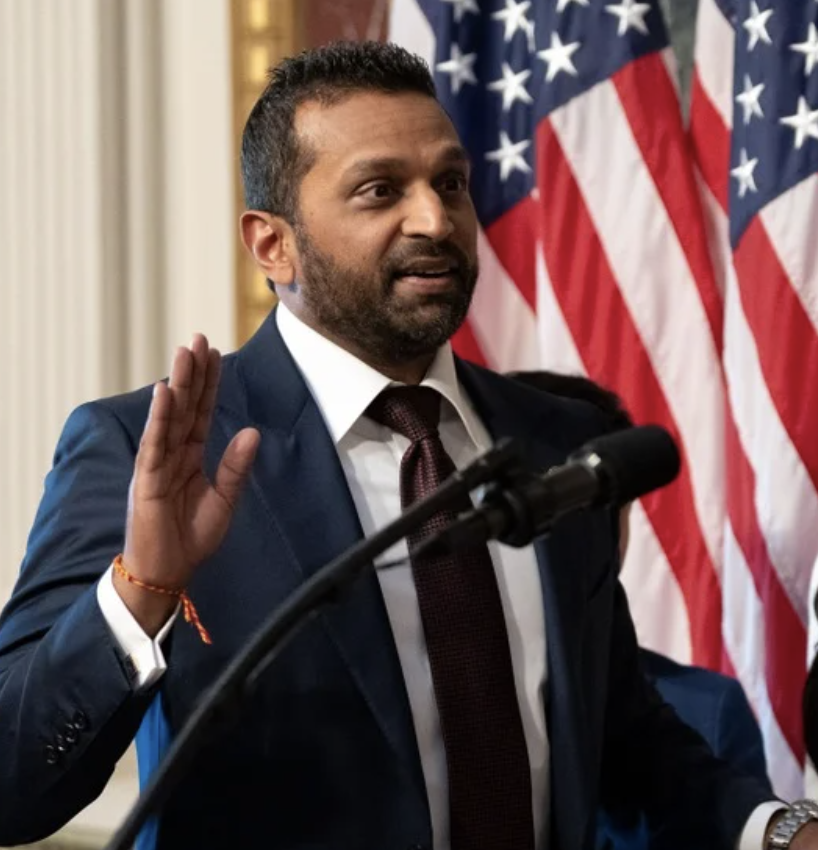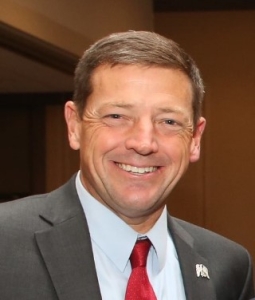 By Ross Parker
ticklethewire.com
By Ross Parker
ticklethewire.com
Dear Son,
As your enthusiasm builds for leaving home and going off to college in a few months, I want to talk with you about having to make on-the-spot moral, legal, and social decisions when you are on your own.
As you know, the news has been filled with reports and commentary about the alleged incidents at Penn State involving former Defensive Coach Jerry Sandusky sexually molesting disadvantaged young boys who participated in his charity. He has denied the charges in the indictment, and due process of law will determine his guilt or innocence.
Up for discussion in the unforgiving public forum are the actions of Assistant Coach Mike McQueary who, on March 1, 2002 at 9:30 p.m., while he was a grad assistant entered the practice facility to obtain some video tapes to review. He heard noises from the shower area and went to investigate. According to reports of his grand jury testimony, he was “distraught” when he saw Sandusky raping a ten-year old boy.
It is unclear what happened next. McQueary apparently made no mention in the grand jury about intervening to save the child, but in the last couple days he has hinted that he forced Sandusky to stop. He then called his father, with whom he had a close relationship, for advice on what to do next. Then he contacted Coach Joe Paterno and reported the incident. Later he also told two other Athletic Department officials. These three, however, say that his report was not detailed enough to cause them to take further action of some kind.
It is clear that no one reported the crime to the police or to Child Protective Services. Allegedly Sandusky’s access to the children and the Penn State facilities was not restricted, and he inflicted other such assaults on children during the nine years that have followed. Both Paterno and McQueary continued to publicly support Sandusky’s charitable activities.
The public reaction to McQueary and Paterno has ranged from commendation to vilification. Paterno, probably the most revered football coach in America, was summarily fired and McQueary, perhaps because of his legal protection as a whistleblower, has been placed on paid administrative leave. Probably neither will have any connection to college football again.
The issue worth thinking about is whether McQueary’s response, whatever it was, presents a moral and legal lesson for the rest of us. In my generation a woman named Kitty Genovese was stabbed to death in New York’s Central Park while dozens failed to take action when they heard her cries for help. Social psychologists have labeled the phenomenon diffusion of responsibility or bystander effect, but the bottom line is that, when confronted with a moral imperative, people who could have saved her life failed to act.
McQueary has been showered with the moral opprobrium of the commentators who have assumed he failed to stop the assault. They have hastened to assure their listeners that they would have assuredly stepped up stopped the violence and called the cops. Jane Turner, an FBI psychological profiler who specializes in child sex crimes, however has indicated that in her experience most people would have walked away as McQueary is alleged to have done. Turner said:
“It takes enormous strength to put one’s moral integrity over your personal inclination to protect fellow colleagues who have committed malfeasance, or criminal activity. The FBI, like Penn State and the Catholic Church, are entities that allows their personnel to report allegations up a chain of command but those in positions of power or change, fail to take immediate or strong actions. It simply boils down to the fact that those in power have a stronger desire to preserve the reputation of their institution, than taking the road of truth or justice. Entities like Penn State, the Catholic Church and the FBI all share something in common; they operate in an insular world where rules or laws that apply to everyone else, do not apply to them.”
Early in my career as a prosecutor, my boss Len Gilman made it clear to us that our job was to do what was right even if we as individuals or our office had to pay the price of being embarrassed or worse. And a couple times we were.
Assume for the sake of this letter that Mike McQueary is neither a hero nor a villain but just a guy who hesitated, as a majority of others would have in 2002, when suddenly confronted with a terrible moral issue. Just a guy who knew that the price to be paid for more aggressive action would be to jeopardize the head coach he idolized, the powerful institution and football program to which he was so loyal, and the future he wanted so badly.
So he called his dad for guidance, then Joe Pa. And that apparently was it, for nine years, until it hit the fan, as it seems with increasing frequency to do. If we have learned nothing else from the massive tragedy that has so damaged the Catholic Church, it is that doing nothing, protecting people and institutions that seem so invulnerable at the time, will usually be disastrous for everyone concerned. And now a legend will die, a great university tarnished for a generation and saddled with millions of dollars of civil settlements, and an apparently otherwise fine young man’s dreams dashed forever. Worst of all, boys who had tough enough lives already were damaged by a man who should have been isolated so he couldn’t harm others.
Son, I hope you always have the luxury of time for meditation and parental guidance before you have to act on a moral issue. But if you don’t, consider this your father’s advice.
Demonstrate the courage I know you have to step up, do what is right, protect the vulnerable, call the police and support them in any way they ask. If there is a price to pay, we will share it together and you will be compensated by the respect of your family and friends.
Oh, and call your mother once in a while.
Dad
Response
Charles Lutz is a retired DEA agent and Penn State University alum. His column is in response to a ticklethewire.com column by Ross Parker’s entitled: A Letter to My Son on Moral Decisions in Light of Penn State. By Charles Lutz For ticklethewire.comWhile I don’t disagree with Ross Parker’s advice to his son to always try to do the “right thing,” he has misstated the facts in making his case in his column “A letter to my Son on Moral Decisions in the Light of Penn State.”
For example, he says that once Joe Paterno, Athletic Director Tim Curley and Senior Vice President Gary Schultz learned of the alleged allegation by Graduate Assistant Mike McQueary that the three took no further action of any kind, and that Sandusky’s access to the children and the Penn State facilities were not restricted. That’s simply not true.
According to the Grand Jury Presentment, when Paterno learned of the incident from McQueary he reported it to his superiors, one of whom was in charge of the police department, which had jurisdiction for all crimes on campus. And when Curley and Shultz learned of the incident they banned Sandusky from bringing children into the locker room facilities, and reported the allegation to the Executive Director of Sandusky’s former charity, the Second Mile. It would have been fair for Ross to have said that he didn’t think what had been done was enough. But what was done was done was certainly more than nothing.
Further, Ross unfairly, in my opinion, accuses McQueary of doing nothing for nine years after making his report to Paterno, Curley and Schultz. But according to the Grand Jury Presentment, McQueary was informed of the actions taken against Sandusky, and that they had been approved by University President Graham Spanier. When McQueary was asked on the stand (at the preliminary hearing for the perjury charges against Curley and Schultz) why he didn’t go to the police, he said, “I thought I did (referring to Schultz).” I’m not sure what else a Graduate Assistant could have done.
Ross is quick to conclude, on his mistaken premise that Paterno, Curley and Schultz did nothing, that Sandusky was free to molest other children. But he fails to mention that during the more than two-year Grand Jury investigation of this allegation, these same facts, and allegations made by many other children, were well known to the Pennsylvania Attorney General (newly elected Governor), and the Commissioner of the Pennsylvania State Police, and that they did nothing to intervene on behalf of the children.
They could have indicted Sandusky on one felony count, exposed him, asked for legal restrictions on his activities with children, and superseded the indictment with the additional counts. But they chose not to do so. While they were quick to point the moral finger at Penn State officials, where were their moral compasses pointed? Perhaps Corbett didn’t want to rock the boat while he was running for Governor(?).
Parker’s Response
Ross Parker was chief of the criminal division in the U.S. Attorney’s Office in Detroit for 8 years and worked as an AUSA for 28 in that office. He is a regular columnist for ticklethewire.com.
By Ross Parker ticklethewire.comThe fact is that exactly who did what and when in this alleged tragedy are hotly disputed subjects which will presumably be sorted out in court in the months ahead.
Neither of us were witnesses so each of us has relied on someone’s version. However, from what I can determine, the column’s assertion is accurate that Sandusky’s access was not restricted to children or to University facilities—except that about a month after the incident his keys to the locker room were taken away.
Coach Paterno did report to the appropriate officials two days after the incident. McQueary did report, in some fashion, to Coach Paterno and then to the Athletic Director and the Vice President for Finance and Business (who also oversaw the campus police), about ten days later when he was called to a meeting with them. Second Mile officials were told something about the incident, but Sandusky continued to be active in the organizationfor eight years.
If my brief and general rendition of the facts is unduly hard on the two coaches, who at least did do something, however limited, then I appreciate former Special Agent Lutz’s corrections of the record. But on the fundamental moral issue, the point is that, although everyone had to know that Sandusky continued to be actively involved with children, coaching, Second Mile activities, etc., no one acted to intervene beyond those initial discussions.
According to the Grand Jury Presentment, no one notified the University Police, the city or state police, or Child Protective Services. No one tried to protect or even identify the alleged child victim or to determine if there were others in need of counseling or protection.





Well said! We would all benefit from remembering such sage advice.